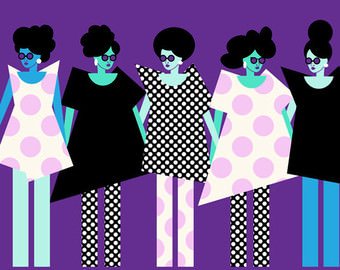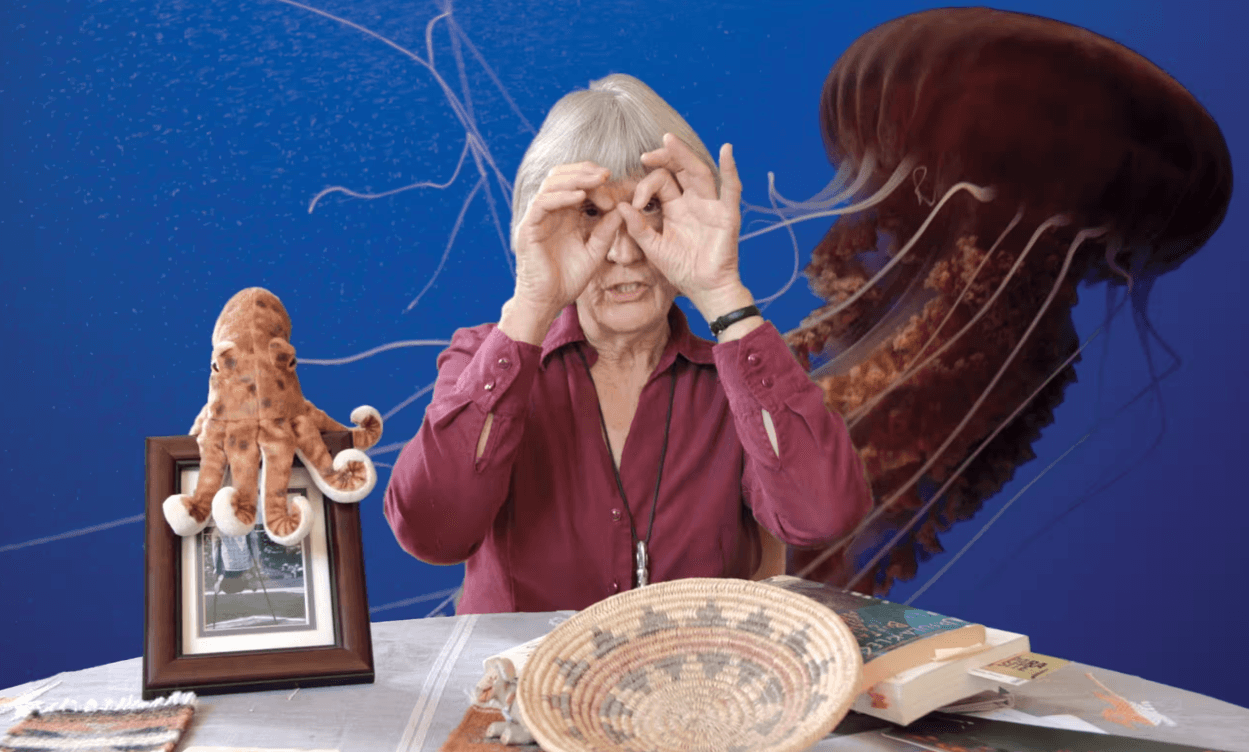
Featured Image Credit: Etsy
In a stuffy room, on a humid afternoon, a gentleman said to me, in what he felt was a philosophical tone ‘Ek aurat hi aurat ki dushman hoti hai’. (A woman is another woman’s worst enemy.)
I flinched as I do when I hear things that seem like they are borrowed from a badly directed Bollywood movie. Then I thought about the numerous occasions on which I had heard the same sentiment expressed in a more sophisticated manner, with a better choice of words.
Women compete with one another, tear each other down, and are insecure, in the family and the workplace. This is a pretty well-known cultural trope. Just like any other trope or false narrative, it ignores the lived experiences of women, in favour of a picture that ‘fits’. It is comforting to those peddling this trope to think that the disadvantages that women enjoy are not because of iniquitous institutions, gender bias, patriarchy (in which both men and women could be participants), and violence (which happens within and outside the home). These disadvantages, they would believe, are because of women, who are bitchy and tear each other down. Enough women don’t rise to positions of power, in certain workplaces, because other women who have made it, don’t let them. This narrative also ignores that women being complicit in patriarchy, or being unsupportive of other women, when it does happen, is often a result of conditioning, and can be overcome to a certain extent by celebrating female/ feminist friendships. (Though the two terms are not interchangeable, for the purposes of this article I will talk on friendships between women feminists). As a matter of fact, the trope of women being toxic competitors is also a part of this conditioning.
This narrative, in real life and popular culture, ignores the female voices, and women’s lived realities, and in short, does not celebrate female friendships enough. On the other hand, every other month the media goes crazy over a new ‘bro-mance’ between male celebrities, ranging from Ben Affleck-Matt Damon to Obama- David Cameron. (A bro-mance, the internet says, is a close non-sexual relationship between two men.) Even when female friendships are celebrated, they can be celebrated in very exclusive and problematic ways.
Also Read: Why No Chuddy Buddies For Women In Bollywood?
But the trope of women tearing each other down, can be fought by talking about the women who have supported you, mentored you, and been your friends. This article, is a step in that direction. It is a portrait of a room full of women whose ideas have made me a stronger and better person.
The Mentor
The first thought that crossed my mind, when I met her, was that she was a muggle Minerva McGonagall, and that I would be crazy to cross her. I was 17 just then, and new to the world outside a sleepy house in a sleepy town. While I had barely read about feminism and feminist legal theory at the time, the notion that women are people, seemed like a sound common-sense principle to me.
Over the course of the next five years, she not only became a mentor to me, but taught me how to question the status quo (a very inconvenient, though enriching heritage). There are some people who are institutions, being around whom is akin to dusting off the pages of an old Classic. Watching someone who has been a part of the women’s movement for more than 3 decades, is an eerie feeling. They have been a part of a living history, when they speak about the Shah Bano case, the protests after the infamous judgment in the Mathura case, and the various galvanizing moments in the movement’s history. Not a moment passes when I think of the ideological clarity and the courage it must have taken to blaze a trail so deep and abiding.
Good Samaritans in the American mid-west
The cold in my university town in the American mid-west was terrible! I remember trudging through 7 inches of snow, in a particularly hideous pair of boots found on sale. Though decidedly ugly, they got the job done, and nothing will induce me to pay a higher compliment to a pair of boots. However, given I was not designed for -21 degrees C snow, a certain amount of doom and gloom was inevitable. Combine this with the fact that in my excellent university, the pro-life point of view was the dominant one, sometimes I would feel like a fish out of the proverbial philosophical water.
In this strange snowy and ethereal town, I found unprecedented levels of feminist solidarity. An email I received from an Indian professor in the sister university of my university, led to several meetings where we discussed race, religion, and women’s rights. How was it, being a vocal feminist, in an environment where not just abortions, but subsidized contraception was frowned upon.
In a slight contrast, was an American Catholic friend, who spoke about being a feminist by default. The gender roles that were religiously sanctioned, were anathema to her. Yet, we had arguments about the disastrous consequences that would follow, in designing public policy based on her,bona-fide belief that life began at conception.
My friend from Kenya told me about Chimamada, and lent me a copy of Americanah. Here was a writer, her voice not clouded by any hesitation, with sharp and cutting prose, that willed you to hear her. I remember long strolls with my friend where we spoke of identity, race and shows by Shonda Rhimes. Meeting different people, in my small university town, far from my country of birth, I was convinced, more than ever, that there are as many kinds of feminism, as there are feminists.
Friendships and Gender Studies
Back in law school, I remember someone saying of me, critically, “She is too much of a feminist”. Strangely, this was even before I began identifying as a feminist. Based on the idea that one might as well be hanged for a sheep as a lamb, I did make it my mission to be ‘too much of a feminist.’ I was aided in this effort by friends I made in a ‘Women and the Law’ class, about which our professor told us, “this class would have succeeded when we will no longer need a women-and-the-law class.” Women’s concerns were not to me in a separate silo, but would, it was hoped, come into the mainstream of legal thinking one day. From classrooms, this friendship extended to writing together, working together, and eventually to setting up film screenings of feminist movies. About slightly less than a decade ago, a friend handed me ‘The beauty-myth’ (a book, as criticized as eulogized, that has not lost its relevance today despite its flaws), and I remember I was never the same person after reading it. These friends helped create a questioning, thoughtful and sincere lens with which I could view the world, and continue to be a comfort when the world I view through this lens, turns out to be disappointing.
The internet becomes your oyster
No discussion of feminist friendships is complete without talking about FII. It has allowed women like me a platform on which to discuss our concerns. The experience of being a part of an intersectional feminist platform has taught me to check my own privilege, which often comes from social and economic factors, and to not drown the voices we are supposed to amplify.
For more reasons than one, being a feminist can sometimes be a hard process. Whether it is dealing with gender stereotyping, casual misogyny, street harassment or even dealing with people who bristle at the very idea of male, caste-based or economic privilege. Some days, you feel particularly sad and broken at the thought that the path of progress is slow, and prone to so much slipping back. It is on these days, I imagine these women, all together in a room. That room is bright, airy and safe, and has enough light to power a thousand struggles, in multiple lifetimes.
About the author(s)
Srishti Agnihotri regularly appears in Trial Courts, the Delhi High Court and the Supreme Court of India. She is involved in research and advocacy on women's rights and child rights. She completed her Masters in International Human Rights Law from the University of Notre Dame, USA.




